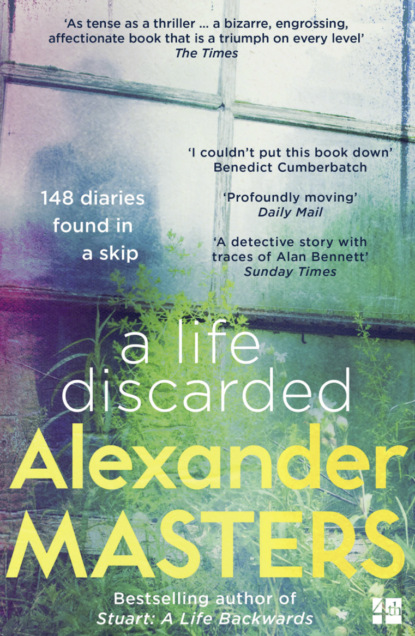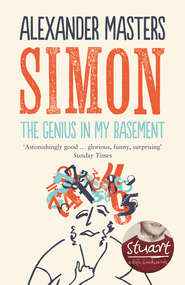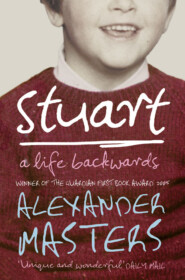По всем вопросам обращайтесь на: info@litportal.ru
(©) 2003-2024.
✖
A Life Discarded: 148 Diaries Found in a Skip
Настройки чтения
Размер шрифта
Высота строк
Поля
Perhaps the diaries belonged to a Trinity don, I thought, and got depressed.
The Ribena box was the one that interested me most.
I imagined the hands of the person who’d pitched it into the skip were still half there, glowing on the cardboard, and wondered if careful scientific analysis could reveal whether the injuries the box had sustained as it landed in the skip were because it had been hurled (perpetrator enraged) or lobbed gently (perpetrator calculating). Using the torch on my mobile phone I peeped through the torn hand hole. The diaries inside had been packed with incompetence. Large dark-coloured journals were separated by single pocket books, leaving narrow shelf-shaped gaps in the layers, like rock caverns. In one corner, a thin hardback had been flattened down with such force that its spine had broken. Many of the books were rotting along the edges, and mossy-coloured, as if I had caught them secretly returning to trees. The cover of one was coated with regular stripes of white mould, like the fungus you get on old cheddar cheese.
I pressed my nose against the hand hole. It smelled crisp and mournful.
There were twenty-seven diaries in this box in total. The first I picked out was a pocketbook: quarter-bound, blue, with a red spine. Inside, a printer’s advertisement read ‘Denbigh Commercial Books’ in a border made of moustache shapes, which made me think of signs swinging in a mid-western breeze and Clint Eastwood clinking into town. On the facing page, the seller had stamped his details in purple ink: ‘W. Cannings Ltd, 23/5 Peckham High Street, London’. The price was marked in the top left-hand corner, handwritten in pencil: 3/10.
Inside, the pages were crammed to the brim with handwriting. The letters were confident and generous, occupied all the available space on a page with six words to a line, and apart from occasional merriments in the letters ‘J’, ‘H’ and ‘d’,
the script continued with almost mechanical regularity from the front cover to the back. It was not a purpose-made journal. No printed diary could have been manufactured to accommodate this writer’s need. Some entries were four thousand words long; a few were even longer; no day was left alone. It was an ordinary pocket notebook, ambushed by a person’s desperation to record his or her life. At the top of the first page, written inside square brackets, as though it hardly mattered, was the year: 1960.
I felt unexpectedly moved by this detail. A tube I could look down seemed to puncture the blur of the last fifty years and pop out again, fifty miles away in South London, beside the diarist as he (in my mind it was already male: there was a destructive element about the way the writing filled up the page – like a boy stamping on fresh snow) walked up Peckham High Street. I put my eye to this tube and blinked at my new friend. Who was he? Why was he moving at such a pace? Was there something about him that already said, ‘You will end up in a skip’? I saw Cannings the stationer’s as a low-ceilinged room, the brass bell above the door shaking off the noise of the traffic outside as my man entered. I imagined a flight of steps in the centre of the shop leading to a basement store, and a stout assistant gloomily wrapping up a parcel beside the cash register. I had not read a word of these books, yet already the diarist was clear in my mind: his height, the colour of his fedora hat, his energetic walking pace, the fact that his brown shoes were not brogues (I hate brogues).
The entire Cannings volume covered two months, from October 16th to December 16th, and many pages had excited-looking comments, put in as after-thoughts, running like bubbles up the margins. It was as though the book had been scooped into wordy water and brought out, gurgling.
I noticed that the covers were warped, and thought for a moment that the book had been bent, as if crammed into a pocket that was too small; but then I discovered the distortion was caused by a small mound of folded inserts stuffed at the back of the diary. The writer, unable to stop himself rushing on even when he’d reached the end of the book, had spilled his text onto torn-up segments of letter paper. Scribbled up the margin of one of these extra sheets, in handwriting as pale as a whisper, were the first words I read:
Hope my diaries aren’t blown up
before people can read them – they have immortal value.
The Cannings diary feels as though it was produced by someone mesmerised by writing. The letters in the body of the text are large, and have been put down at speed in soft pencil or ballpoint pen.
The next book I picked out was a cheap, thin, black notebook, covered in washable rexine. Here the handwriting was smaller and in blue fountain pen, and from a year later:
I must continue with this starving life – the long slogging hours with only a sandwich for lunch – the work must so fill & dominate my soul …
He is working on one project in particular – the greatest of his life. But, as with all the things that matter to him profoundly (such as his name, his sex, his address, his physical appearance), he doesn’t say what this project is. It is simply ‘it’. He doesn’t describe ‘it’ even vaguely, either because that would be dangerous, because he is a spy or a bomb maker; or because ‘it’ is so obvious to him, so much a part of him, that ‘it’ must be on a par with his existence.
I cling to life very desperately – feel I could do great things – very afraid of physical disaster, nothing could be worse – could not bear to die before I had given of my gifts to the community – have already worked & suffered so to bring my gifts towards fruition.
In some sections of this journal there are more crossings-out than others, more words have been underscored and the handwriting is more uneven: injure, atmosphere, doesn’t believe me!! so hungry! I’ll kill them!
One must live dangerously, take risks, or one otherwise is in an ordinary metier all along … I now see I can do it.
3 The Freshest diaries … (#ulink_7a3d2e0a-db51-56e9-955b-4a349c05fc5a)
I had a dream, of beating Peter up.
Aged fifty-four
The freshest diaries contain the oldest handwriting.
These are in the second box – the one the size of a thigh – and are as out of place beside the 1960s diaries I found in the Ribena crate as bubblegum squashed on an Etruscan pot: one is indignant green, similar to fish-and-chip-shop mushy peas; another is milky parma violet; a tangerine version looks as oily and dimpled as the fruit. The diaries in the Ribena box suggest Britain after the war. By contrast, these books in the thigh box couldn’t have existed before the 1990s. They’ve been produced using computer-aided chemical processes. They’ve made long container journeys from South-East Asia by sea, and they have a texture similar to thin, soft rubber; it’s disgusting, like a sheath.
The endpapers cracked when I eased them open.
The writing in the thigh box is also different to that in the earlier books. It’s done in blue-black ink with a medium nib, never biro, and makes me think of escaping maggots. The early diaries from the 1960s are written in ebullient letters. Four words are sometimes all it takes to fill the width of a page. In these modern books ‘I’ crams fourteen words to a line. The height of the letters is the same as the thickness of the pen nib. The shapes of the letters have changed too: ‘h’s are often written with just a vertical line, or (in small, quick words such as ‘that’ and ‘the’) ignored entirely; ‘u’s and the round bit of ‘d’s are as flat as pennies. Everything is wriggly or sat on. But after the initial shock this hand is not too difficult to read.
If I was “God”, I would
strike the people all dead.
Two lines of text can easily be slid into each gap between the printed rulings:
Peter still risks having a knife stuck right through him;
and the police coming up here and all that,
just like with the widow lady.
And, whereas in the early books the diarist wrote always on or parallel to the line, here he runs at precisely two degrees to the horizontal, suggesting that his arm is constrained, as if by a piece of rope:
It was in the news that a man has been let out of prison –
was wrongfully imprisoned since 1975, twenty three years;
myself been shut up at Peter’s for one year more.
Yet these diaries are unquestionably by the same person as the ones in the Ribena box. It’s not the handwriting that gives the author away, it’s the sense of urgency. In both cases, the text charges in from a previous book in the top-left-hand corner of the first possible page and, two hundred sheets later, in the last millimetres of the closing blank side, explodes off towards tomorrow. Removal men couldn’t squeeze in more. The luridcoloured modern volumes each contain 150,000 words and cover roughly two months of entries, or 2,500 words a day. The typical English human can write thirty words per minute. Assuming no pauses for thought or to relax hand muscles, this man is therefore spending an average of an hour and twenty-three minutes each day offloading his thoughts onto paper. It is never less than forty minutes. On rare occasions it is as much as three hours.
There are no crossings-out or hesitations. Once or twice the ink fades abruptly in the middle of a word, in the space of a few letters. But the writer must have spare cartridges close by, because instantly it spurts away again, hauling the day on.
Life is an emptiness in these late books. All talk about the Great Project is gone. There is no mention of ‘it’. He sees nobody and goes nowhere. ‘I’ describes himself as ‘ruined’, lost’, ‘sacrificed’. There has been a smash of all his hopes. It is not only the man called Peter who is responsible for this catastrophe; ‘I’ several times accuses ‘those who are stuffed with sleep’.
The writer refers to this man called Peter as his ‘gaoler’ – a ‘cruel’ person.
I just wish I could put my hands round his throat
and strangle him – throttle him to death.
We never see Peter. The writer never describes him physically. We smell him. ‘Pongy Peter’, ‘I’ labels him; ‘Stinky Peter’. Occasionally, particularly at night, we hear him. His footsteps creak along the corridor below; there is a rattle at the rear of the house and a rush of water: he has gone to the toilet.
It is still a riddle to me, how all the stink of his wicklery [going to the toilet] comes up to the back landing when he has a crap – if it comes up through the drainpipes or the ventilators or what. Or if the smell seeps out of his bedroom from the pipe to his washbasin.
Occasionally, Peter creeps into ‘I’s room. What happens next is hardly believable. He steals ‘I’s belongings! Books, valuable letters, volumes of the diaries themselves. He sets light to his haul in the garden.
I think Peter must have burnt all E’s photos, and a lot of the music – took advantage when I was in hospital.
What is going on? Why doesn’t the diarist stop this hateful behaviour?
Peter is a detestable man.
He seems indestructible, like Nelson Mandela.
4 Flatface (#ulink_d65c4f65-bf29-5337-a27e-c497ae774dd8)







